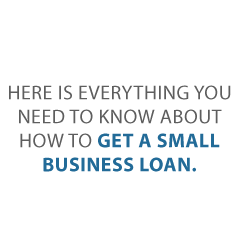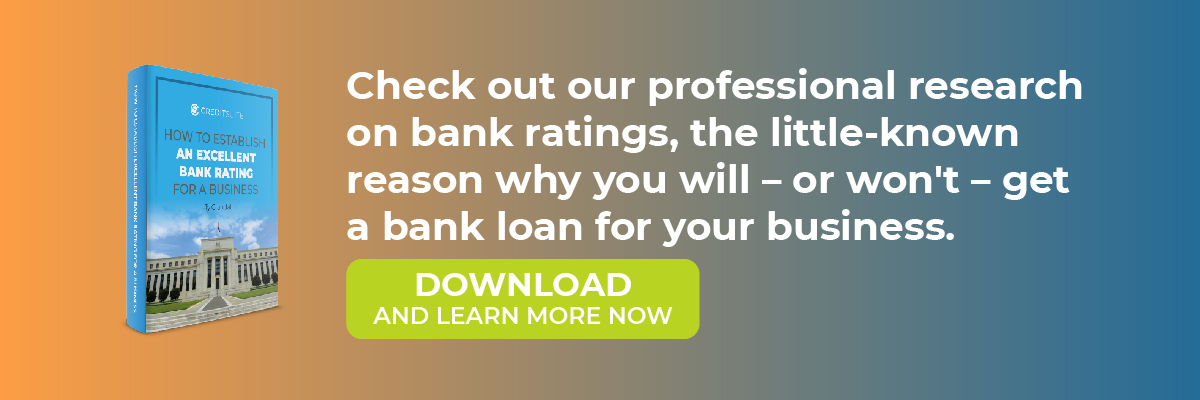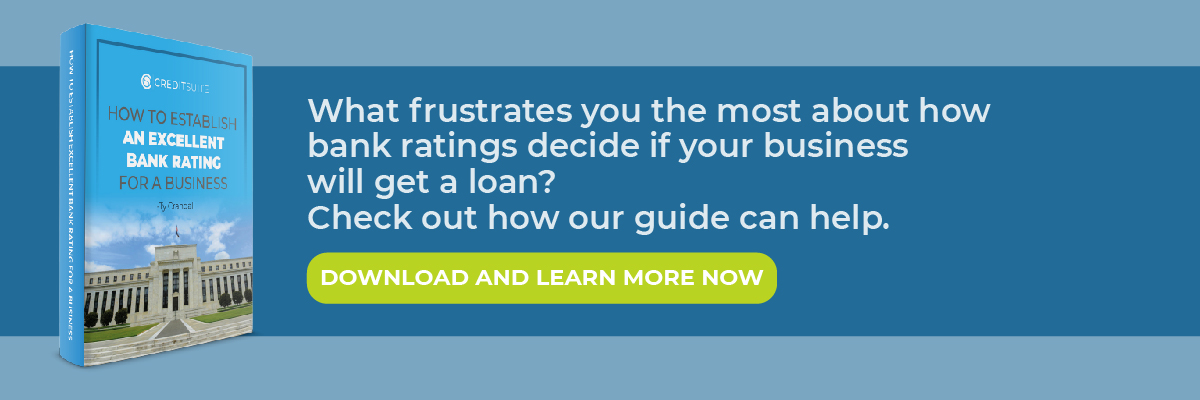If you are wondering how to get a small business loan, you may be thinking in terms of credit score. Of course, both your personal and business credit score make a huge difference in approval chances. That isn’t all there is to it however. Here is everything you need to know about how to get a small business loan.
How to Get a Small Business Loans: What You May Not Know
Know
Did you know that how your business is set up, how you present your business to the lender, and even which type of lender and loan you are applying for can all affect your approval chances? These are the things no one really tells you.
They do matter however, and lenders definitely take these things seriously.
How to Get a Small Business Loan: a Fundability Foundation™
First, it is almost guaranteed you are going to have to have a personal guarantee for a business loan. There are exceptions to this, but in general you can expect that your personal credit will come into play. However, this doesn’t mean that bad personal credit will keep you from funding your business. The first key to how to get a small business loan is to work on overall Fundability.
If your business as a whole is Fundable, your personal credit will not have as much of an impact. The first step in that process, is to set up your business properly.
How to Set Up Your Business to be Fundable
Here is what you need to do to set up your business to be as Fundable as possible. The goal is to ensure your business is separated from yourself as the owner for credit purposes. This step is also important to solidifying your business as one that is legitimate and viable in the eyes of lenders.
Separate Contact Information
You can get a business phone number pretty easily that will work over the internet instead of phone lines. In addition, the phone number will forward to any phone you want it to so you can simply use your personal cell phone or landline. No need for a new phone! Whenever someone calls your business number it will ring straight to you.
You can use a virtual office for a business address. What is that? It’s not what you may think. A virtual office is a business that offers a physical address for a fee, and sometimes they even offer mail service and live receptionist services. In addition, there are some that offer meeting spaces for those times you may need to meet a client or customer in person.
Get an EIN
The next thing you need to do is get an EIN for your business. This is an identifying number for your business that works in a way similar to how your SSN works for you personally. Some business owners used their SSN for their business. This is what a lot of sole proprietorships and partnerships do.
However, it really doesn’t look professional to lenders, and it can cause your personal and business credit to get all mixed up. When you are looking to increase fundability, you need to apply for and use an EIN. You can get one for free from the IRS.
You Have to Incorporate
Incorporating your business as an LLC, S-corp, or corporation is vital to fundability. It lends to the appearance that your business is legitimate. It also offers some protection from liability.
When you incorporate, you become a new entity. You basically have to start over. You’ll also lose any positive payment history you may have accumulated as well.
This is why you have to incorporate as soon as possible. Not only is it necessary for fundability and for building business credit, but so is time in business. The longer you have been in business the more fundable you appear to be. Time in business starts on the date of incorporation, regardless of when you actually began doing business.
Separate, Dedicated Business Bank Account
You have to open a separate, dedicated business bank account. There are a few reasons for this. The main one for this purpose is, it further separates your business from you as the owner.
Get All Necessary Licenses
For a business to be legitimate it has to have all of the necessary licenses it needs to run. If it doesn’t, red flags are going to fly up all over the place. Do the research you need to do to ensure you have all of the licenses necessary to legitimately run your business on all levels.
Professional Business Website
Spend the time and money necessary to ensure your website is professionally designed and works well. Don’t use a free hosting service, and make sure your business has a dedicated business email address. Furthermore, it needs to have the same URL as your website. Don’t use a free service such as Yahoo or Gmail.
How to Get a Small Business Loan: Business Plan
The next step in how to get a small business loan is the business plan. You have to sell your business to lenders as one that will be a good investment. Honestly, it’s best to hire professional writers and researchers to help you put this together, but if you cannot, there are plenty of free resources online that can help. This includes templates. Generally, a well put together business plan should include the following.
- An Executive Summary
- Description
- Strategies
- Market Analysis
- Analysis of audience
- Competitive Analysis
- Plan for Design and Development
- Plan for Operation and Management
- Financials
- Financial Information
How to Get a Small Business Loan: Research Lenders
The next step in how to get a small business loan is to choose the right type of lender for your needs. This will take research. There are generally three types of lenders. There are traditional lenders, SBA lenders, and private lenders.
Traditional Lenders
These are your standard financial institutions. They include large banks, smaller community banks, and credit unions.
SBA Lenders
For the most part, these are traditional lenders and sometimes non profits that lend funds with a federal guarantee through the Small Business Administration.
Private Lenders
These are lenders other than traditional banks and credit unions that offer terms loans. Usually they operate online. Occasionally they will have a brick and mortar location as well. The difference between these and traditional lenders is that the loans have looser approval requirements and a much faster application process.
Most often you can simply apply online, get approval in as little as 24 hours, and the funds are in your account within 24 to 48 hours after approval. They are an option if your personal credit is okay and you need funding fast.
Many of these have popped up in the past decade as more and more people are branching out to start their own business. The need for a financing option from something other than traditional banks has encouraged this growth.
There are some benefits to using private business loans over traditional loans. The first is that they often have more flexible credit score minimums. Even though they still rely on your personal credit, they will often accept a score much lower than what traditional lenders require. Another benefit is that they will often report to the business credit reporting agencies, which helps build or improve business credit.
The tradeoff is that private business loans often have higher interest rates and less favorable terms. In the end though, the ability to get funding and the potential increase in business credit score can make it well worth it.
How to Get a Small Business Loan: Research Types of Loans
Not only can you choose your lender type, but you can also choose your loan type. This is the next part of the process in how to get a small business loan. Choosing the right type of loan both for what you need, and for what you qualify to get, can make all the difference.
Traditional Term Loans
These are the loans that you go to the bank to get. As a business, your business credit score can help you get some types of funding even if your personal score isn’t awesome. That isn’t necessarily the case with this type of funding however.
With a traditional lender term loan, you are almost always going to have to give a personal guarantee. This means they will check your personal credit. If your personal credit score isn’t in order, you will likely not get approval.
What kind of personal credit score do you need to have in order to qualify for a traditional term loan? If you have at least a 750 you are in pretty good shape. Sometimes you can get approval with a score of 700+, but the terms will not be as favorable.
If you have really great business credit, your lender might be more inclined to be a little more flexible. However, your personal credit score will still weigh heavily on the terms and interest rate.
Of all of the different loan types, this is the hardest to get. It is usually worth the trouble though if possible, because these generally have the best rates and terms.
SBA Loans
These are traditional bank loans, but they have a guarantee from the federal government. The Small Business Administration, or SBA, works with lenders to offer small businesses funding solutions that they may not be able to get based on their own credit history. Because of the government guarantee, lenders are able to relax a little on the personal credit score requirements.
In fact, it is possible to get an SBA microloan with a personal credit score between 620 and 640. These are very small loans, up to $50,000. They may require personal collateral as well.
The trade-off with SBA loans is that the application progress is lengthy. There is a ton of red tape connected with these types of loans.
Business Line of Credit
This is basically the traditional lender’s version of a business credit card. It’s revolving credit, meaning you only pay back what you use, just like a credit card. However, rates are typically much better than a credit card. The application and approval process is more similar to that of a traditional term loan.
If you need revolving credit and can qualify for a term loan, this is the best of the available business funding types for you. It is great for bridging cash gaps and covering short term expenses without the high credit card interest rates.
There are no cash back rewards or loyalty points, though. This makes some business owners prefer business credit cards in some cases, despite higher interest rates.
Invoice Factoring
If you are an established business with accounts receivable, invoice factoring is one of the available business funding types that you have access to. This is where the lender buys your outstanding invoices at a premium, and then collects the full amount themselves. You get cash right away, without waiting for your customers to pay the invoices.
Invoice factoring is a good option if you need cash fast, or you do not qualify for other funding types. The interest rate varies based on the age of the receivables.
How to Get a Small Business Loan: Put It All Together
There is a lot to do when it comes to how to get a small business loan. The thing to remember is, while it all has to be done, it doesn’t all have to be done independently. You can work on setting up your business while simultaneously researching loans and writing your business plan.
If you are just getting started, you may not be able to complete the setup process until you get a loan. That’s okay. Do what you can when you can, and keep the big picture in mind. If you do these things and make your payments consistently on-time, you will find it easier and easier to get funding for your business.



